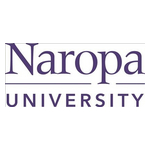Many Zoomers Turn to Doomscrolling or Retail Therapy to Cope With Mental Overload; But Some are “Touching Grass”
BOULDER, Colo.–(BUSINESS WIRE)–As college students might say: the “vibes are off” across the country. A staggering 94% of Americans say they sometimes feel mentally overwhelmed, and the crisis cuts deep for Gen Z (ages 18-28) at 97%. A new survey conducted online by The Harris Poll for Naropa University, a leader in mindfulness education and one of Colorado’s top educators of mental health counselors, paints a sobering picture. Many Gen Z (i.e., Zoomers) see themselves as helpers, are emotionally overloaded and unsure how to find relief.
More than two-thirds (68%) of Zoomers agree that they often put other people’s emotional needs ahead of their own, and 61% report that they don’t know where to turn when they feel emotionally overwhelmed. While more than 80% of Gen Z are on social media, it may not be able to deliver the support they need.
“We commissioned this survey to better understand how people, especially younger generations, emotionally navigate in today’s world,” said Charles G. Lief, President of Naropa University. “The mental health issues experienced today require fresh approaches to how mental health professionals are trained. That includes recognizing and anticipating the very real risk of professional burnout experienced by therapists, teachers, first responders and others in the helping professions.”
A Social Media Paradox: Mental Health Trends Aren’t Enough
Starkly compared to a minority of Gen X ages 45-60 (43%) and Baby Boomers ages 61-79 (18%), a majority of Gen Z and Millennials ages 29-44 (63% each) agree they often find mental health information on social media (e.g., TikTok, YouTube, Instagram). Both generations feel like the information is falling short, with 58% of Gen Z and 61% of Millennials agreeing that finding self-care tips online is as helpful as putting a band-aid on a broken bone.
“Gen Zers are emotionally intelligent and aware, but they are stressed,” said Azara Santiago-Rivera, Ph.D., Dean of Graduate Psychology at Naropa University. “Gen Zers are open to receiving mental health services and are proactive in seeking such services, including online services. That openness has led to increased demand for services. Our findings show a generation hungry for deeper, more meaningful self-care than the superficial tips they find online.”
What Gen Z Coping Looks Like
Gen Zers report some of the ways they are coping with being mentally overwhelmed include:
- 29% doomscroll—more than any other generation (17% Millennials, 6% Gen X and 2% Boomers);
- 47% binge-watch TV;
- 27% use retail therapy; and
- 64% listen to music
Yet, 31% report touching grass (i.e. engaging with the real world) as a coping tactic, more than any other generation (24% Millennials, 16% Gen X and 15% Boomers). Nearly a third (31%) of Gen Z report going off the grid (i.e.., taking a break from technology/social media) to deal. “These are insightful techniques,” remarked Santiago-Rivera, “that can open people up to a more formal introduction of mindfulness and other contemplative tools to break out of the mental overload which is negatively affecting anyone seeking a level of relief and healing.”
Zoomers Are Running on Empty, Some Feel Like NPCs
Gen Z are less likely than Millennials to report full energy levels when thinking about the state of the world. Imagining themselves as characters in a video game, only 19% describe their energy levels as full, compared to 26% of Millennials. Nearly one in 10 (8%) of Gen Z say they feel like an NPC (non-playable character) when thinking about the state of the world, perhaps indicating growing disassociation and nihilism.
Survey Method
This survey was conducted online within the United States by The Harris Poll on behalf of Naropa University from May 6-8, 2025, among 2,085 adults ages 18+, among whom 391 are Gen Z (ages 18-28). The sampling precision of Harris online polls is measured by using a Bayesian credible interval. For this study, the sample data is accurate to within +/- 2.5 percentage points using a 95% confidence level.
Email the contact information below for more information on the survey or additional generational data. Gen Z data can be found here. To learn about Naropa’s contemplative education programs and approach to mindfulness, visit naropa.edu/academics.
About Naropa University
Naropa University, nestled in Boulder, Colorado, was established in 1974 by Tibetan Buddhist teacher Chögyam Trungpa Rinpoche. Drawing its name and inspiration from the teachings of the 11th-century Indian Buddhist sage Naropa, this private university stands out distinctly among America’s higher education landscape in its effort to integrate eastern wisdom with traditional western scholarship. Recognized as the pioneering force behind contemplative higher education and the start of the modern mindfulness movement, Naropa University is the sole institution to integrate a university-wide contemplative pedagogical approach. At Naropa, education transcends the ordinary; the institution embraces the entirety of its students—mind, body and spirit—augmenting traditional methodologies with practices like meditation. Since receiving its accreditation in 1986, Naropa University consistently upholds the exacting standards for quality and accountability set by the Higher Learning Commission (HLC). Learn more at naropa.edu.
Contacts
Media Contact
Molly Sposato
Grasslands: A Journalism-Minded Agency
Molly@MyGrasslands.com



